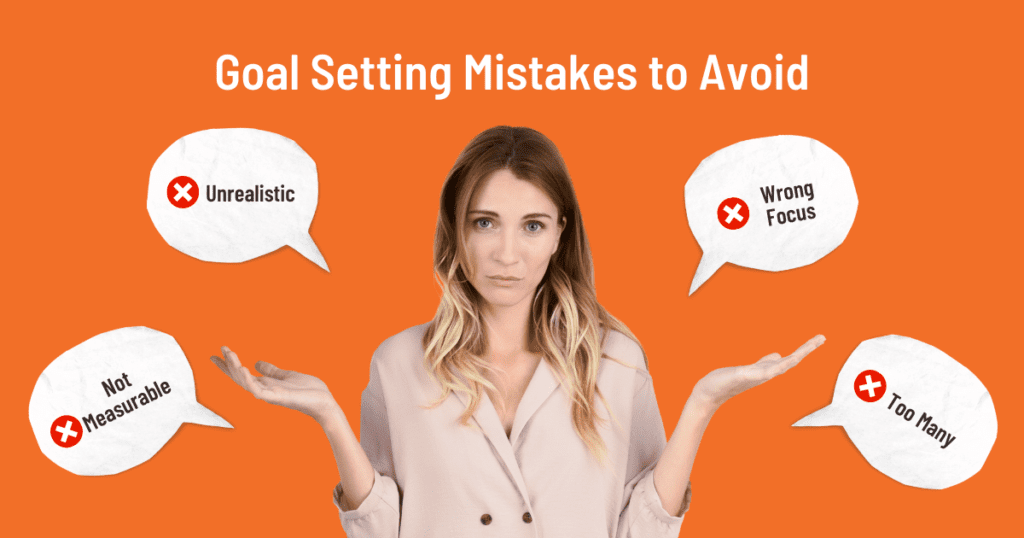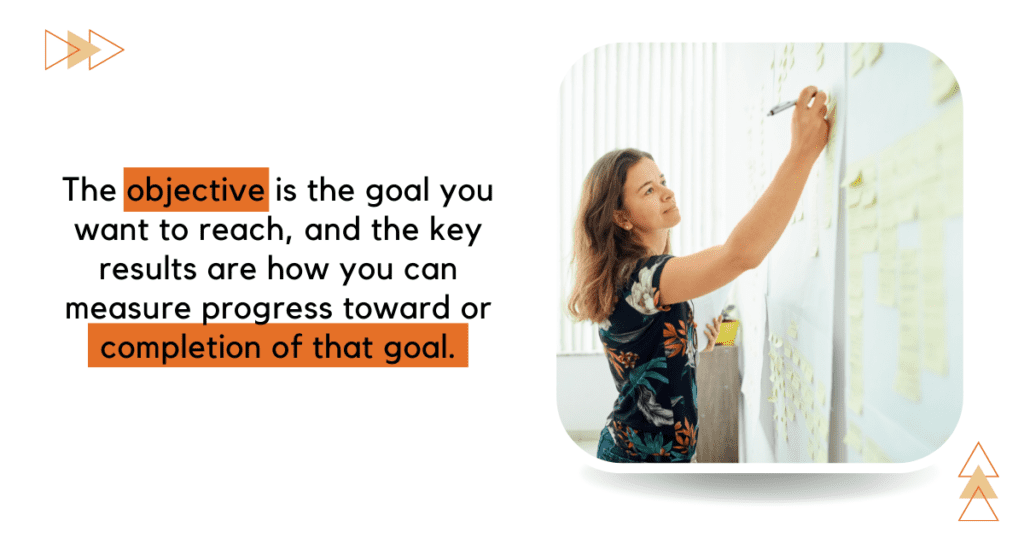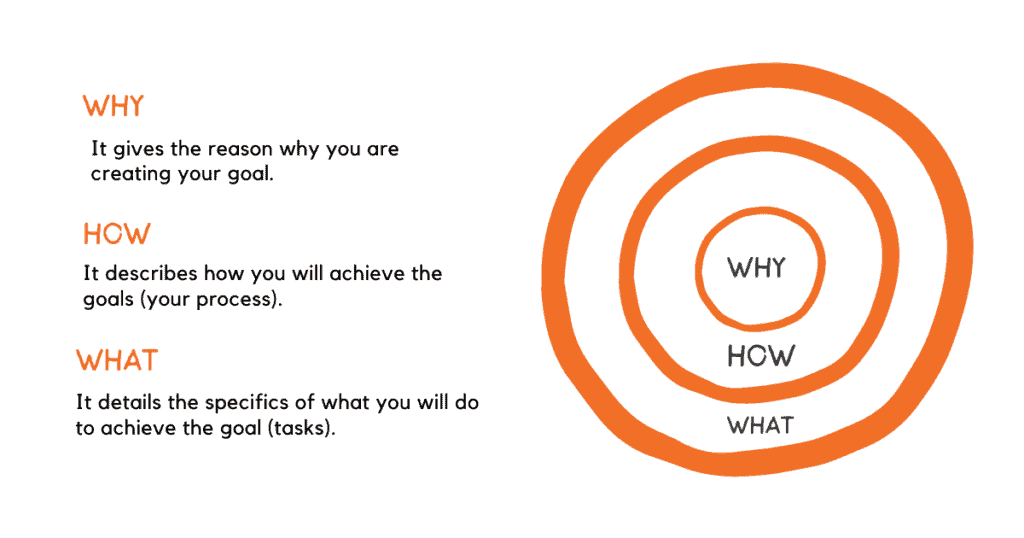A new year is right around the corner, so it’s time to start planning for the year ahead. What are the top business goals for your franchise in 2023? The sky is the limit, so long as you take a calculated and strategic approach to goal setting! With that said, we are excited to announce the start of a new series for franchise owners on this important topic. In this first article, we will review some common mistakes business owners make when setting goals and share 4 goal setting frameworks you can use as you plan out your priorities for 2023.
4 Goal Setting Mistakes to Avoid

Setting goals is one thing. Achieving them is another. Too often, business owners make vital mistakes that doom their efforts. Here are some of the top goal setting mistakes you must avoid as you plan out your business goals for 2023.
- Unrealistic: It’s okay to dream big as you think about what you want to achieve in your franchise in 2023, but you also need to be realistic and choose something attainable. Ask, “Can we achieve this?”
- Wrong Focus: You can also make a mistake when you choose the wrong focus for your goals. What is most important to your business? What will help you move forward the most in 2023? Beware of the goals that, although nice, will steal your focus from what matters most. Ask, “Is this where I want to focus my efforts in 2023?”
- Not Measurable: Another common mistake in goal setting is to set goals without thinking about how you will measure them. Every goal must be measurable, and you should track your progress. Ask, “What are 1-3 ways I can measure this goal?”
- Too Many: You want to achieve a million things in 2023, but when you set too many business goals at once, you won’t have the time or energy to reach them all. Prioritization is essential. Ask, “Is this a reasonable number of goals, or should I save some for later?”
As you set goals for your franchise in 2023, you’ll want to avoid these costly mistakes. One of the best ways to do that? Follow a goal setting framework!
4 Goal Setting Frameworks to Help in Setting Goals

A goal setting framework is a structured approach to setting goals. There are many to choose from, but each aims to break down large, complex goals into simpler steps to make them easier to achieve.
1. SMART Goals
SMART is an acronym that can help you remember the main criteria of an achievable goal.
- Specific: This criterion will help you focus on what you want to achieve and choose something precise, not general or ambiguous. Ask yourself, “Is this goal specific enough?”
- Measurable: Measurable indicates that you have some way to assess whether you are making progress toward or have reached the goal. Ask yourself, “How will I measure this goal?”
- Achievable: This criterion will help you choose a goal you could conceivably hit (even if it’s a stretch). Ask yourself, “Is this goal obtainable?”
- Relevant: Here, you assess if the goal makes sense for your business and applies to what you want to (and can) achieve. Ask yourself, “Does this goal encompass what I want to achieve in my business this year?”
- Time-Bound: Finally, you should set a reasonable time frame for achieving your goal. Ask yourself, “What is a realistic deadline for reaching this goal?”
For more on setting SMART goals, check out this tutorial (along with a free template) from HubSpot.
2. OKRs

OKR is an acronym for ‘objective and key results.’ The objective is the goal you want to reach, and the key results are how you can measure progress toward or completion of that goal. It can be written as a statement:
I will (Objective) as measured by (Key Results).
In this framework, you choose one objective and then 3-5 supporting key results that will benchmark and monitor how you achieve the objective. You can repeat for multiple objectives, perhaps for each area of your business (however, be mindful of the pitfall of setting too many goals!).
Google commonly uses OKRs. You can read more about that here.
3. Locke and Latham’s 5 Principles
Dr. Edwin Locke and Dr. Gary Latham are psychologists who spent years researching goal setting individually and then collaborated to present a theory that proposed five main elements of effective goal setting. They are:
- Clarity: Goals must be precise and well-defined.
- Challenge: Instead of setting the bar too low, goals should be a challenge (but still reachable)
- Commitment: To achieve the goal, everyone must understand and commit to doing their part.
- Feedback: Feedback throughout the entire process (from setting to achieving the goal) helps people stay on track and motivated and allows the team to adjust as needed.
- Complexity: The parameters around the goal should be based on the complexity of that goal – for example, the timeframe, subtasks, milestones, etc.
As you can see, there is some overlap between this goal setting framework and SMART goals. Still, there are some new elements, such as the importance of everyone being committed to the goal and getting feedback throughout the process. Check out this article for more on Locke and Latham’s goal setting theory.
4. The Golden Circle

The Golden Circle theory comes from Simon Sinek, a leadership expert, author, and inspirational speaker. The concept of the golden circle was coined in a TED talk on How Great Leaders Inspire Action.
The golden circle is like a target with a center point and two outer rings.
- The center of the circle is Why. It gives the reason why you are creating your goal. It is not only the objective you want to achieve but also what motivates you to achieve it.
- The next layer outside is How. It describes how you will achieve the goals (your process).
- The outer layer is What. It details the specifics of what you will do to achieve the goal (tasks).
The inclusion of ‘why’ makes this goal setting model unique. While the other goal setting frameworks get at the nitty gritty, the Golden Circle backs up and makes you consider why you are setting the goal in the first place. This is the main idea behind Sinek’s bestselling book Start with Why: How Great Leaders Inspire Everyone to Take Action.
Setting Goals for 2023
These goal setting frameworks will help you as you set goals for your franchise for 2023. Choose one or blend the various ideas into something unique. And makes sure to avoid the pitfalls we covered too!
Stay tuned for more articles in this series for even more help setting goals. Next time, we’ll share specifics by discussing the top business goals that will move your franchise ahead in 2023!



